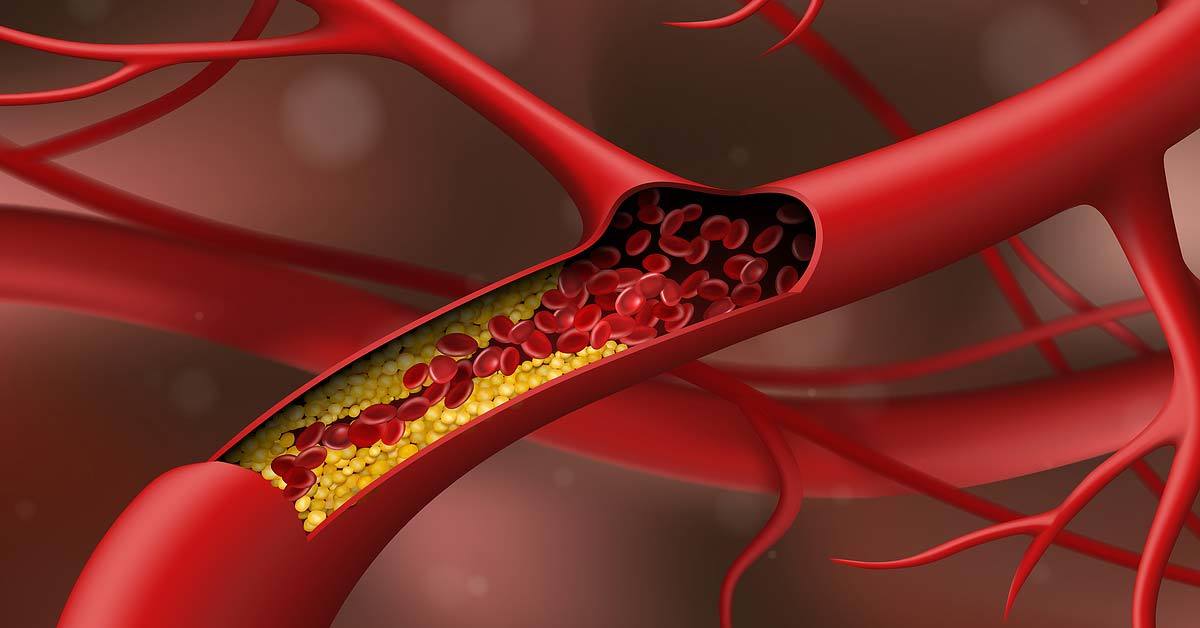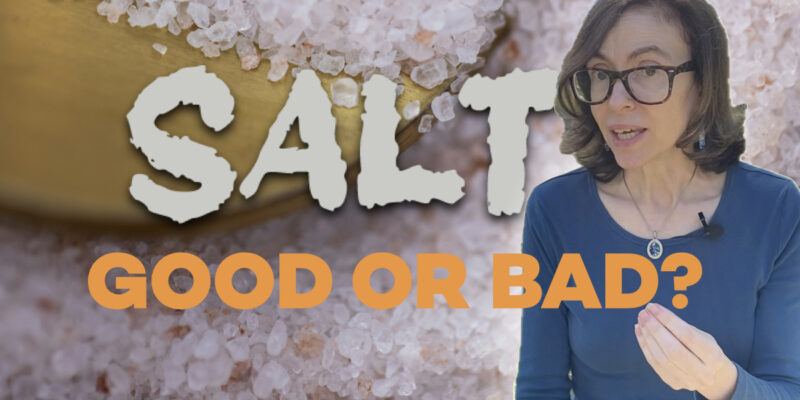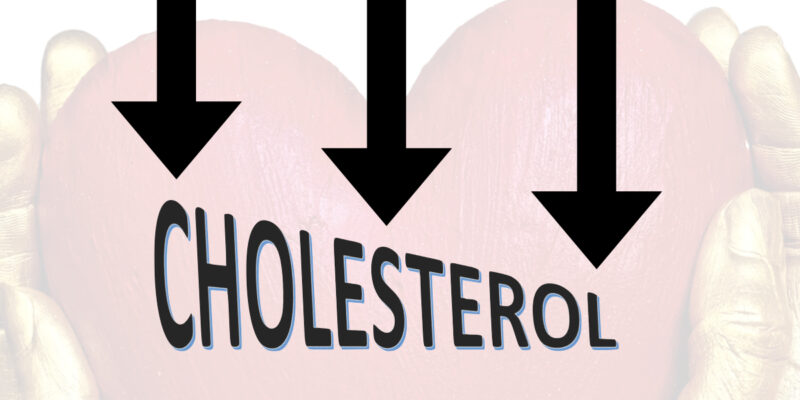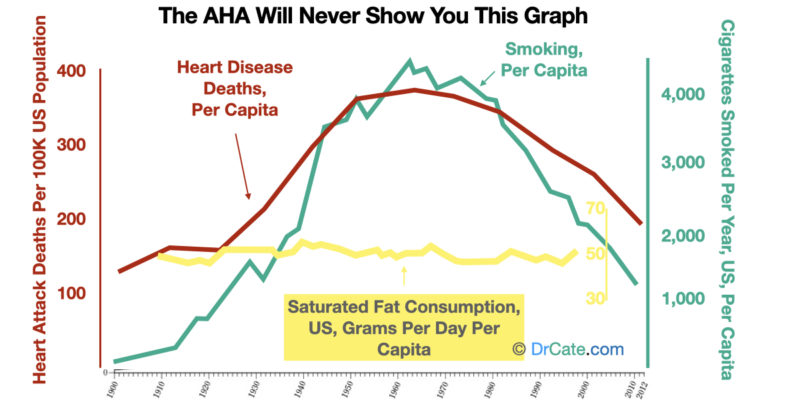You might think salt makes you bloated. It's actually something else. We hear all the…

Calorie free sweetener erythritol may clot blood in high risk adults
Table of Contents
- If you sprinkle erythritol into your coffee, you might be stirring up heart disease.
- What is erythritol and how is it calorie-free?
- Is using erythritol bad for your heart?
- Yeah, but is it really all that bad?
- No long-term safety tests were evaluated during the FDA approval.
- Who should worry about erythritol causing a heart attack or a stroke?
- How much erythritol is a safe amount?
- How much does Keto ice cream bump your erythritol?
- How does erythritol cause heart attacks and strokes?
- Would other sugar alcohols do the same thing?
- What should you substitute?
- So what is the bottom line on erythritol?
- What are other people saying?
If you sprinkle erythritol into your coffee, you might be stirring up heart disease.
Erythritol looks like sugar, tastes like sugar, and you can bake with it. It’s nearly calorie-free because it’s metabolized differently than regular sugar. While naturally present in many fruits in minute quantities, it’s now being mass-produced by fermenting corn. Lately, its become the sweetheart of the food industry. It’s practically universal in keto and low-carb products, and also commonly marketed to people with diabetes. And now it looks as though it can cause blood clots in susceptible adults.
If you use Stevia, you might want to double-check the package ingredients. Some brands of Stevia are blended with erythritol.
What is erythritol and how is it calorie-free?
Erythritol is not as caloric as sugar because it’s a category of sugar molecule called a sugar alcohol. Sugar alcohols are not as well absorbed or metabolized as typical sugars.
This article is continued below...(scroll down)
Alcohol sugars like xylitol and sorbitol are often added to sugarless chewing gum, laxatives, and cough syrups. But these can cause digestive issues when you eat much more than a few grams. That’s because these sugar alcohols don’t get absorbed. When they make their way to the colon, they can promote bloating, diarrhea, and discomfort. Erythritol actually gets absorbed so doesn’t upset the colon. And, after circulating around your bloodstream for a couple of days, your kidneys eliminate it.
In other words, the sweetness comes in and the calories go out.
If you think that sounds too good to be true, you might be right. New research suggests these sugar alcohols have unexpected side effects.
Is using erythritol bad for your heart?
Researchers at the Cleveland Clinic found that higher levels of erythritol in the blood caused a “not modest” increase in the risk of both heart attack and stroke. They performed the analysis 3 times, in 3 different groups of people. Twice in the US, and once in Europe. The groups with the highest levels had 4 to 5 times the risk of the group with the lowest levels.
The timeline was very short, just 3 years. Most risk factors are evaluated over 10 or 20-year periods. So this is pretty sensational.
In the US groups, only 4 percent of people who ate the least erythritol had either a heart attack or stroke, versus 18 percent of the people who ate the most. Both heart attacks and strokes are caused by blood clots that occur on inflamed, atherosclerotic arteries.
In the European group, 10 percent of people eating the least amount of erythritol experienced these problems, while a whopping 45 percent of people eating the most were affected.
Yeah, but is it really all that bad?
The authors were not specifically looking to study erythritol. They evaluated thousands of compounds in people’s blood and the association between erythritol and blood clotting stuck out like a sore thumb. That suggests erythritol is pretty potently bad–in high-risk people eating a lot of it.
What’s more, the risk was manifested after just 3 years. This is much faster than established factors like high blood pressure, obesity, and prediabetes, which typically take 5 to 20 years of study for risks to become apparent.
Risk factors are cumulative too, meaning the more you have the higher your risk. So if you are over 55, and already have a few risk factors, I’d say yes, it’s bad. But of course, more research is needed.
No long-term safety tests were evaluated during the FDA approval.
According to Robert Rankin, executive director of the Calorie Control Council, “The results of this study are contrary to decades of scientific research showing reduced-calorie sweeteners like erythritol are safe, as evidenced by global regulatory permissions for their use in foods and beverages.”
It’s important to recognize that the Calorie Control Council is a trade group for manufacturers of artificial sweeteners. In fact, it’s been called “More like an industry front group than a trade association.” So Robert Rankin is not exactly an impartial observer.
The problem with this particular artificial sweetener is that the FDA designated it “Generally Recognized As Safe (GRAS).” That means there was no requirement for performing long-term studies before releasing it into the food supply.
While there may be an abundance of single-dose and other short-term safety studies, that may not be relevant to a substance used daily for years.
Who should worry about erythritol causing a heart attack or a stroke?
If you’re healthy, you’re probably not endangering your health very much, but it’s really too early to know.
The people in the study were very high risk, hardly your average man on the street, however, so it’s likely these findings don’t apply to most of us. Everyone in the study was in the hospital being evaluated for possible heart disease. In the US, the average age was 65, with a range of 44 to 72, and even older in Europe. Many people had diabetes, high blood pressure, heart failure, or a history of a heart attack.
On the other hand, if you are an erythritol enjoyer over 55, and have any of these risk factors, you might want to think about how much you’re getting.
How much erythritol is a safe amount?
It’s too early to really know.
The researchers did not have the ability to ask any of the study participants about their diets. So instead they checked blood levels. The folks at the lowest risk all had levels lower than 3.75 micromoles. The folks at the highest risk all had levels above 5.97 micromoles. A micromole of erythritol translates to about 10 millionths of a gram.
These numbers will become more meaningful when you read the next paragraph. The researchers themselves had no idea what a normal level was, so they designed another study.
How much does Keto ice cream bump your erythritol?
About 1000x. 8 healthy people were given 30 grams of erythritol, which is about 2 Tablespoons or the amount in a pint of keto ice cream. Within 30 minutes, erythritol levels in their blood shot up from around 4 micrograms to between 3,000 and 8,000 micrograms, after that peak it started declining but stayed well over baseline for 2 to three days.
In a press release, the lead author, Dr. Hazen, warned that these “markedly elevated levels in the blood are…well above those observed to enhance clotting risks.
How does erythritol cause heart attacks and strokes?
Erythritol causes tiny particles called platelets in the blood to clump together, forming a clot. When blood clots in your heart, that’s a heart attack. When it clots in your brain, that’s a stroke.
What I find concerning is that the dose required to cause this clotting effect is only 45 micrograms. The 8-person test group I just mentioned showed that after that single 30-gram test dose, the equivalent of a minor ice cream binge, blood levels stayed well above the 45 microgram threshold for nearly 2 days.
Would other sugar alcohols do the same thing?
None have been tested but if I had to bet money I would put it on YES, they would. In fact, according to some studies, other artificial sweeteners outside of the sugar alcohol category seem to have at least some pro-clotting effect on platelets. This may be related to how they process serotonin, the pleasure chemical that makes us crave sweet taste—but that’s just a speculative guess.
What should you substitute?
As research comes out striking down just about every artificial sweetener, I’m going to say just eat sugar. If you’re worried about calories, glycation, or your insulin levels, then just eat less sugar. LOL.
On a serious note, I think this hopeless search for sweetness without side effects is nature’s way of telling us that something is wrong.
I thought I was cursed with a sweet tooth from birth and would never be able to resist chocolate candies and dried fruits if any found their way into my house. But as I write about in Deep Nutrition, that was a product of sugar’s ability to blunt your taste for everything else.
And more than that, it’s a byproduct of the metabolic effects of seed oils. I write about how seed oils drive the most powerful kinds of sugar addictions in The FATBURN FIX.
So what is the bottom line on erythritol?
Putting everything from this new study in Nature together, here’s what I think.
The people in the highest risk group were more likely to be consuming enough erythritol that their level would go really high periodically. In other words, chronic daily use with some periodic binges. So if you are over 55 with risk factors, I’d suggest limiting erythritol-sweetened indulgences to maybe a few times a year.
On the other hand, if you’re under 55 with normal blood pressure, fasting blood sugar, and no prior history of cardiovascular disease, getting just a few grams maybe 2-3 times a week is less likely to be a problem.
Keep in mind, anything sweet can deaden your sense of taste, depriving you of deriving enjoyment from other flavors.
What are other people saying?
This doctor wrote up his thoughts and he has included key images from the study. I agree with most of what he’s saying. However, where I differ is his thinking that the dose is too high. He points out that the average person gets 13 grams of erythritol every day, and concluded that the 30 mg dose was too high. But I disagree. f someone is getting 13 grams a day on average that most likely means some days they get much less and some days they get much more. And I think it’s those spikes on top of regular consumption that might really represent a problem.
Please note: Please do not share personal medical information in a comment on our posts. It will be deleted due to HIPAA regulations.
This Post Has 17 Comments
Note: Please do not share personal information with a medical question in our comment section. Comments containing this content will be deleted due to HIPAA regulations.




















You posted about soy lecithin a while back and I just noticed that Athletic Greens lists lecithin as one of the main ingredients. It also says at the bottom “This product contains a premium lecithin for phosphatidyl choline and phosphatidyl inositol content, which is derived from soy. This product has been tested and contains no soy trypsin inhibitor or other soy proteins.”
Was this a bad purchase?
If there’s a good deal of it then it’s not great. You get lecithin from egg yolks and your body will make it if you eat a rounded diet with ample protein and avoid seed oils.
For an intro to the diet, visit this page: http://drcate.com/deep-nutrition-made-simple
Thank you so much for the info! Various family members started using Health Garden monkfruit as a sugar substitute so I got some, too. My SIL and I both noticed it didn’t seem to 100% agree with us and wondered if it was really that good for you? This info helped me a lot. P.S. I looked up your website to see if I could leave you a message
– I’ve been diving into your Deep Nutrition book about genes and I can’t remember the last time I was so “excited” to read a non-fiction book. I’ve learned to much and am already changing my lifestyle. I lost count of how many times my mouth has literally dropped open and just hung open, I was so shocked by some of what I read that I never heard of or considered. Thank you!!!!!
This: “this hopeless search for sweetness without side effects is nature’s way of telling us that something is wrong” is such a gold nugget of truth.
I went through the circle of no sugar, no fruit, trying and using sweetener alternatives, never quieting the sweet tooth, “binging” on sugar and then going no sugar again and…
The sugar alternatives just keep the flames of sweetness addiction raging. Interestingly, in traditional Chinese medicine, they assign meat a sweet taste. And I found, at least for myself, it is one of the most effective ways to calm the sweet tooth to drink meat and bone broth and eat enough meat. I can eat a piece of traditional cake or have gelato in the summer without falling into the sugar trap – when I focus on nutritious food in the first place and do not make the cake or keto cake a daily affair.
I’m so glad you escaped the circle. It sounds like you found a great way to assume control, which is often what sugar steals from us.
What about Aspartame? It is the ONLY sugar free I consume in moderation, after I read this convincing comment on reddit.
I would highly appreciate your opinion regarding it, as everyone I know is against aspartame. But no matter how much I dig in, I can’t find something conclusive about it.
Here’s the comment:
—–
Sugar is one of the most, if not the most, significant causes of cardiovascular disease and type 2 diabetes. This is proven.
There are no known mechanisms by which artificial sweeteners, specifically aspartame and sucralose, could enter cells and interact with DNA with carcinogenic effects.
By fearmongering over ambiguous data that apparently hasn’t even been controlled for smoker status and physical activity, both of which are strongly correlated with increased cancer risk, the authors of this article (and the study) are potentially causing people to choose to consume a substance which is proven to be health negative in lieu of one which has not been.
—
SOURCE: https://www.fda.gov/food/food-additives-petitions/additional-information-about-high-intensity-sweeteners-permitted-use-food-united-states
Aspartame is one of the most researched nutritional additives there is. By researchers all over the world.
I’ve read some 100 human trials on Aspartame, and there’s basically a fat zero negatives about it. Only very loose correlations that exist in one study, and then the opposite is found in another. Making them nothing but rather pointless random variations due to limited sample sizes or controls.
The only thing that I could conclude with Aspartame use, was that it can make the symptoms of epilepsy and migraines worse. Not cause them, but if you already have them, they might get worse. Might.
But being worried about that is like being worried about nuts, because 1% of the population is allergic to it. Yeah, it’s an issue – for them, but not for anyone else.
I recommend avoiding it on an empty stomach if possible for a variety of reasons. Maybe I need to do an article on different sweeteners.
Understood! I used to use it during fasting, so I’ll stop doing that.
Yes, I think a clear verdict on the popular sweeteners would be great as I find conflicting info everywhere. Also, thanks for taking the time to reply to my comment!
Dr Cate,what about pure Stevia? I use it in my morning coffee.
This study only evaluated erythritol, but pure stevia would not have any erythritol so no need to worry.
Thanks for the heads-up Dr. Cate! Can we revisit the case for sporadically using Manuka Honey or Organic Maple Syrup? In “Deep Nutrition” you note that from the liver’s point of view, these are no different than table sugar.
Yes, it makes a minuscule nutritional difference. Go with the flavor you love best.
Would honey be better than processed white sugar?
Marginally, see reply above! 🙂
Another interesting and informative piece of research by Dr. Shanahan. More and more things seem to be heading towards eat real food without ingredients lists. Thanks for taking the time to research and write this and for sharing it.
Bill O’B
Not arguing or advocating the use, good or bad of artificial sweeteners. For the alternative, you said to just use sugar. Just asking, wasn’t one of the reasons the war on sugar began is because it is not a natural product and white refined sugar became the bad guy? So, isn’t there a better sugar/sweetener to use than white refined? Seems like almost all sweeteners touted as natural have some kind of refining done to them. Looking for the best option. Coconut sugar, maple syrup, Agave, mashed bananas, honey, Stevia, Monk fruit??
Sugar is sugar, as far as your body is concerned. My take is that there is very little reason to bend over backward to avoid the granulated stuff. This topic is covered in more detail in Chapter 9 of Deep Nutrition.